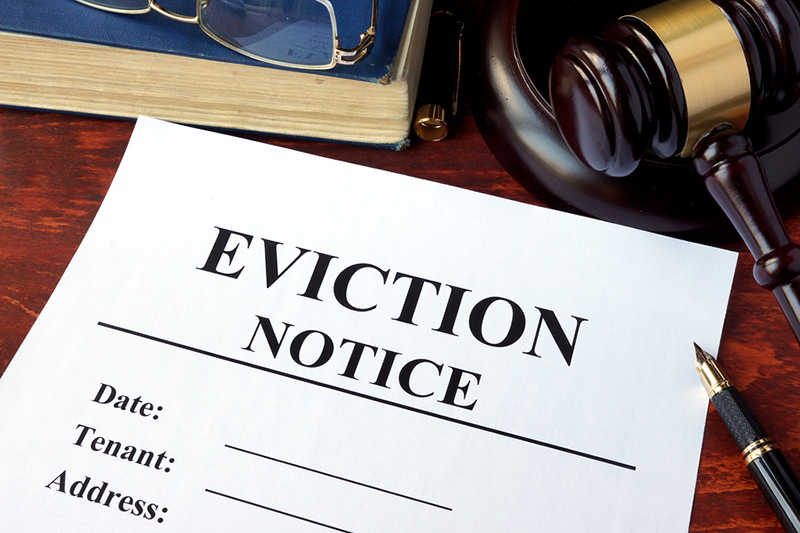Blog

Trusted Northwest Suburban Law Firm
847-944-9400
How to Take an Eviction Case in Chicago to Trial
By Michael DeSantis
Landlords may wonder when is the right time to bring an eviction case in Chicago to trial.
In the state of Illinois, landlords are required to give a 5-day eviction, 10-day eviction or 30-day notice of eviction, depending upon the situation. However, when warnings don’t work and the tenant refuses to pay rent or correct the offense to the landlord, the landlord must take steps to bring the eviction case in Chicago to trial.
There are three major steps landlords must take to make this happen.
Step One: Summon the Tenant to Court.
Once the termination period of the eviction notice is expired, a landlord can file for a court case, which can usually be scheduled within 2-3 weeks. In the meantime, the sheriff of the county in which the property is located can serve the tenant with papers for one of two types of complaints:
Unfortunately, the tenant may make it difficult for the sheriff to serve them papers, especially if they don’t answer the door or are never home. If the sheriff is unable to locate the tenant, they will file an affidavit with the court to verify their efforts. The landlord can then petition the court for more time to serve the tenant and assign a plain-clothed private investigator or special process server to serve the papers. They typically have a higher success rate than law enforcement.
Step Two: Appear in Court with the Tenant.
An eviction case in Chicago begins with the landlord and tenant meeting in court to discuss their grievances. In most cases, a landlord will send their landlord/tenant law attorney in their place to represent their best interest. Usually the judge will ask the parties to speak and see if they can reach an agreement. If not, the parties may proceed with a bench trial, where the judge will hear each side with evidence. If one party requests a continuance, the judge will usually grant one and the next court date will be set for the bench trial.
Step Three: Attend a Bench Trial (if necessary).
If for whatever reason the landlord and tenant cannot resolve their grievances in the first court appearance, the landlord’s attorney can request a trial to resolve the case. Most likely the case will proceed to a bench trial as they are far more common and much easier to schedule. In a bench trial, the judge hears both sides with evidence and makes the final ruling. However, the tenant or tenant’s attorney will sometimes request a jury trial. In a jury trial, the same evidence is presented before a jury, who decides the case. In either kind of eviction case in Chicago, a landlord/tenant law attorney can help you assemble evidence, such as the lease, termination notice, evidence of rent paid and unpaid, any police reports, paperwork from the court, photographs of damages, etc. An attorney will also ensure that everything is done correctly to avoid any delays in paperwork processing or an unexpected dismissal of the trial.
Throughout the Process, Use a Landlord/Tenant Attorney?
From serving the initial eviction notice to making a final court appearance, an experienced landlord/tenant law attorney can assist through all phases of the eviction process. While some landlords may want to pursue legal action on their own, few understand the nuances of document preparation and filing that is necessary to navigate the court system and see the trial through without a dismissal.
Also, attorneys are helpful to landlords because the procedures for filing for eviction cases in Chicago vary significantly, depending on your location. For example, in the city of Chicago, landlords must provide at least a 30-day notice if they are not going to renew a tenant’s lease. Outside of the city, landlords must file their case for eviction in one of the six Circuit Court Municipal Districts of Cook County where their property is located. Rules vary, depending on how to file and where.
A good landlord/tenant law firm will be able to guide landlords through the varying logistics of their county and advise them of what to expect and how to prepare for their eviction case in Chicago. If you are a landlord and have an eviction issue, we can help. Contact Gardi, Haught, Fischer & Bhosale LTD today at 847.944.9400 or request a case evaluation below.
